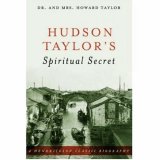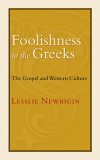Review: Principles of War: A Handbook on Strategic Evangelism
 Principles of War: Thoughts on Strategic Evangelism by Jim Wilson
Principles of War: Thoughts on Strategic Evangelism by Jim Wilson
My rating: 4 of 5 stars
The author used the proven principles of war as a framework to explain the spiritual warfare of evangelism. He stretches here and there, but ends up with a thought provoking little book. I disagreed with some things and at times scratched my head wondering how some things would be practically applied. Though it is easy to bemoan the lack of evangelistic activity among many churches today, I wonder if that lack at least in part reflects a lack of proper strategizing and clarifying of objectives such that the individual Christian truly knows what they’re doing. It’s easy to look out and see problems among Christians but often the roots of the problem are not properly diagnosed and the solutions far too simplistic. I think this book is worth reading and thinking through.
Missionary Biography

I listened to a reading of Hudson Taylor’s Spiritual Secret (Sermon Audio). I knew little of Taylor before listening to this reading. His main objective was to preach the Gospel to the millions of China. He did not seem to be a man of extraordinary gifts or attainment. However, he used what he did have to the fullest to reach those people. Though not necessarily a talented writer, he learned to write in order to inform people of the need in China, and his little pamphlet circulated in the millions.
The need he wrote of was the need of the people to have the Gospel, not the financial need of his mission work. In fact, he never asked for money from anyone other than God, and his needs were always met and he operated completely without debt. He did ask for laborers for the field and hundreds responded. It took many years for Taylor to do the work he hoped to do in China, and he was at it right up until his death.
Another interesting fact from this account is that George Mueller was a generous contributor to the China Inland Mission. Yes, the George Mueller that operated the orphanage in England, whose faith is noised abroad. If you know anything of Mueller at all, you know he did not have an abundance of this world’s goods.
I have read the accounts of him waking up in the morning with absolutely no food for him and the children. Surely, he did not have anything to spare. So, what was he doing giving to Taylor’s work while the orphanage was running so lean? He is a testimony to selfless, sacrificial giving. Though he was doing a good work, which had many needs, he did not become absorbed and self-centered in his own work. He still reached out to others in need, remaining Christ-centered. He understood that “God loveth a cheerful giver” (2 Corinthians 9:7). He gave out of his poverty abundantly. He did not worry over this for he had the promise: “And God is able to make all grace abound toward you; that ye, always having all sufficiency in all things, may abound to every good work” (2 Corinthians 9:8).
Statements on the Gospel
I could not count the times that I have been reading a passage that I have read many times before, when the text just grabs me! This happened recently while I was reading Paul’s account of his conversion and calling to preach the gospel in Acts 26. Jesus appeared to him and said, “For I have appeared unto thee for this purpose, to make thee a minister and a witness both of these things which thou hast seen, and of those things in the which I will appear unto thee” (Acts 26:16). Before we move to the primary statement in verse 18, let us consider a couple of things from this verse.
Saul was brought to a confrontation with the Lord of Glory, Whom he previously did not own. Saul was made to bow, submit to the sovereign lordship of Jesus Christ. Note that in exercise of His kingly authority (all authority in heaven and in earth), Jesus makes demands of Saul—“I have appeared unto thee for this purpose.” He says that Saul is not free to do as he pleases, rather is under the yoke of Christ. The message of salvation that Saul received was not a message of a personal escape from trouble and trial. It was not a liberation of the flesh to serve self without guilt. It was a message that meant owning the dominion of the Most High and serving Him fervently with his whole person. Paul would later exhort the Romans to offer themselves as living sacrifices, consecrating their whole selves to God.
Jesus called Saul to be a minister and a witness. He was to preach the gospel, evangelize, do missionary work. The words of Jesus constrained him in this work—“To open their eyes, and to turn them from darkness to light, and from the power of Satan unto God, that they may receive forgiveness of sins, and inheritance among them which are sanctified by faith that is in me” (Acts 26:18). The message he had received was the message he took to the world. He saw his work as to turn men from the darkness of their idolatries, no matter how sophisticated, and reprove them of their false loyalties. He declared to them the true and living God, Creator of heaven and earth, and men must “turn” to Him “that they may receive forgiveness of sins, and inheritance. . .”
This gospel message seems lost to many in our day. Salvation is turned into a personal escape and reward. It is counted among myriad remedies for the various problems of modern man. A gospel of decision and choice is foisted upon eager “seekers”. Modern men have tried a number of things to help them and so they will give religion its fair chance. The result of this is individualistic, selfish lives that do not bow to the lordship of Jesus Christ. A religion that gets them where they want to go.
Solomon said, “Where the word of a king is, there is power” (Ecclesiastes 8:4). The gospel is none other than the word of the King, and not surprisingly, it has power. The word for power in Ecclesiastes 8:4 is a word that means authority or bearing rule. The king has authority and speaks with power. The gospel is the word of the King that speaks with power, authority and He is to be obeyed, reverenced, and served.

Along this line, I read another great statement on the gospel the other day.
The church is the bearer to all the nations a gospel that announces the kingdom, the reign, and the sovereignty of God. It calls men and women to repent of their false loyalty to other powers, to become believers in the one true sovereignty, and so to become corporately a sign, instrument, and foretaste of that sovereignty of the one true and living God over all nature, all nations, and all human lives. It is not meant to call men and women out of the world into a safe religious enclave but to call them out in order to send them back as agents of God’s kingship.
(Leslie Newbigin, Foolishness to the Greeks—The Gospel and Western Culture, p. 124).
Heathen Missionaries

In Heathendom every true convert becomes at once a Missionary. The changed life, shining out amid the surrounding darkness, is a Gospel in largest Capitals which all can read. Our Islanders, especially, having little to engage or otherwise distract attention, become intense and devoted workers for the Lord Jesus, if once the Divine Passion for souls stirs within them. Many a reader, not making due allowance for these special circumstances, would therefore be tempted to think our estimate of their enthusiasm for the Gospel was overdone; but thoughtful men will easily perceive that Natives, touched with the mighty impulses of Calvary, and undistracted by social pleasures or politics, by literature or business claims, would almost by a moral necessity pour all the currents of their being into Religion, and probably show an apostolic devotion and self-sacrifice too seldom seen, alas, amid the thousand clamouring appeals of Civilization.
A Heathen has been all his days groping after peace of soul in dark superstition and degrading rites. You pour into his soul the light of Revelation. He learns that God is love, that God sent His Son to die for him, and that he is the heir of Life Eternal in and through Jesus Christ. By the blessed enlightenment of the Spirit of the Lord he believes all this. He passes into a third heaven of joy, and he burns to tell every one of the Glad Tidings. Others see the change in his disposition, in his character, in his whole life and actions; and amid such surroundings, every Convert is a burning and a shining light. Even whole populations are thus brought into the Outer Court of the Temple; and Islands, still Heathen and Cannibal, are positively eager for the Missionary to live amongst them, and would guard his life and property now in complete security, where a very few years ago everything would have been instantly sacrificed on touching their shores! They are not Christianized, neither are the Civilized, but the light has been kindled all around them, and though still only shining afar, they cannot but rejoice in its beams.
Missionary Patriarch—The True Story of John G. Paton, James Paton Ed., pp. 388-389
Currently Reading
View at Amazon.com
Or, view on Christian Book Distributors
 |
Hollywood Worldviews: Watching Films with Wisdom & Discernment By Brian Godawa / Inter-varsity Press |
 |
Elders in Congregational Life: Discovering the Biblical Model for Church Leadership By Phil A. Newton, Mark Dever / Kregel Publications |
 |
Genesis in Space & Time By Francis Schaeffer / Inter-varsity Press |
 |
Through Gates of Splendor By Elisabeth Elliot / Tyndale House |







